First woman to win an Indy 500 was Marcus Ericsson's engineer in 2022. Will she repeat?
INDIANAPOLIS -- Angela Ashmore had no idea she'd made Indy 500 history as she stood in victory circle at Indianapolis Motor Speedway, as she watched Marcus Ericsson with a wreath around his neck take a few glorious sips of whole milk, then pour the rest down his face.
All Ashmore knew was an indescribable feeling of watching her driver win the world's most iconic race. Knowing she had played a part in Ericsson's victory, as his engineer, was enough for her, more than enough.
But weeks after the May 29, 2022 Indy 500, Ashmore found out the racing world knew something she didn't know. Ashmore was the first woman on an Indy 500 team to ever win the race -- in any position -- in 106 years.
"It was pretty incredible. It's the biggest race in our sport, one of the biggest races in the world," said Ashmore, 35, a Purdue graduate and Chip Ganassi Racing engineer. "The race has a lot of history and being the first female to win, that's a big accomplishment."
Especially because Ashmore won the Indy 500 in a major role. She is the engineer on Ericsson's team who manages the telemetry of the car, the fuel mileage and strategy during the race. Throughout the season, she oversees the electronic system to ensure quality data is collected and turned into useful information.
In other words, Ashmore makes Ericsson's car go faster.
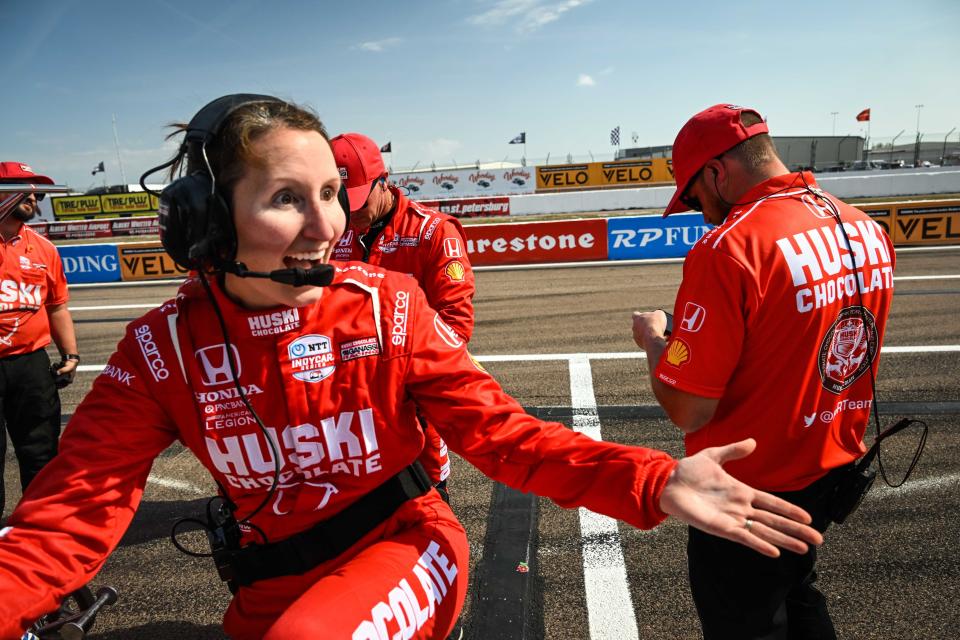
"From the driver perspective, the engineers are the ones you are the closest with," Ericsson said this week. "I spend a lot of time with Angela when I'm not in the car, sitting, talking and discussing strategy."
Yet as Ericsson drank the milk in 2022, just like Ashmore, he had no idea his win had catapulted her into racing history books. Not until weeks later when a driver and an engineer learned exactly what they had done.
"First of all, I was shocked when I heard it, that she was the first woman. I was sure it had happened before," said Ericsson. "It's crazy it hadn't happened before. It's so great to be part of that history and I'm hoping it will help push more women into the sport."
Ashmore wants that, too, to be a role model for young women trying to break into male-dominated industries, to show them gender doesn't matter, just their skills.
But first, Ericsson and Ashmore have a race to run. And on Sunday, their No. 8 Honda is competing to become the first back-to-back winner of the Indy 500 since Helio Castroneves won in 2001 and 2002. Can they recreate their 2022 magic for a repeat?
"Well, I never want to say that because I don't want to jinx it," said Ashmore. "But we have a fast car that races well in a pack. Chip Ganassi has four really good cars. I hope one of them, but especially the 8 car, takes home a win."
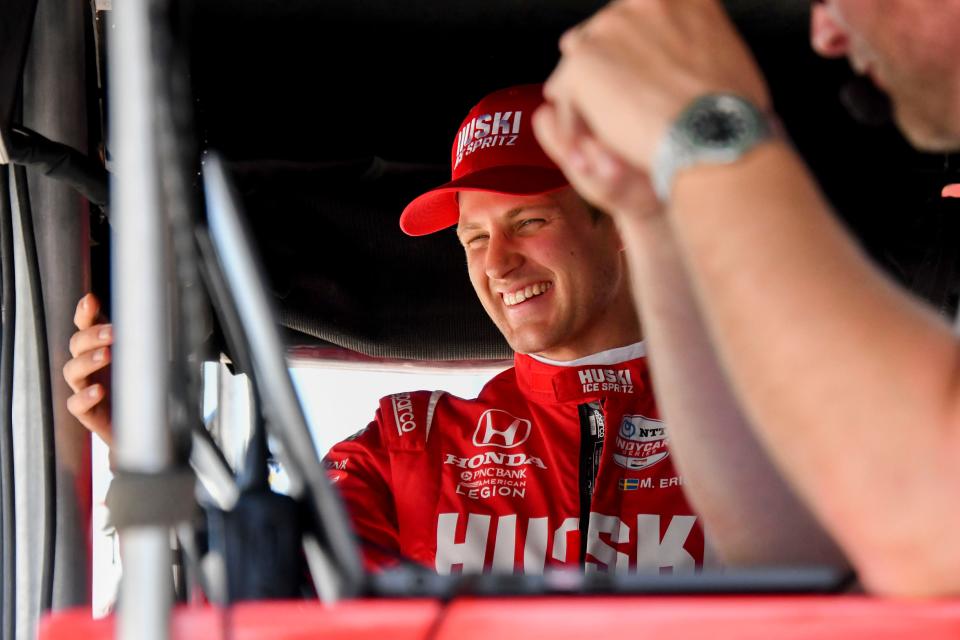
Ericsson doesn't hesitate when asked the same question: Can you repeat an Indy 500 victory? "That's the plan. That is the plan. That's what we're here for."
And with Ashmore on his team, Ericsson said, he is pretty sure the plan can become reality. "She's pretty amazing."
'It was an obsession'
Ashmore grew up in Coopersville, a small town in western Michigan, with a dad who loved racing. The family spent many Saturday nights watching short-track events at the Berlin Raceway. Her dad and uncle even raced together, with a one-man pit crew, her dad.
On Sundays, Ashmore and her dad would settle in front of the television to watch NASCAR. "I literally fell in love with it watching it on TV by the time I was 4 or 5 years old," said Ashmore.
Inside her bedroom closet, her entire wardrobe consisted of racing T-shirts. "It was an obsession. I knew that's what I wanted to do for a career."
But what racing career, she wasn't sure. Maybe a driver or a pit crew member. Maybe one of those track announcers. Or maybe an engineer.
In high school, Ashmore excelled at math and science and took an intro to engineering class where the students built a car. If she had loved racing before, that class took it to a new level.
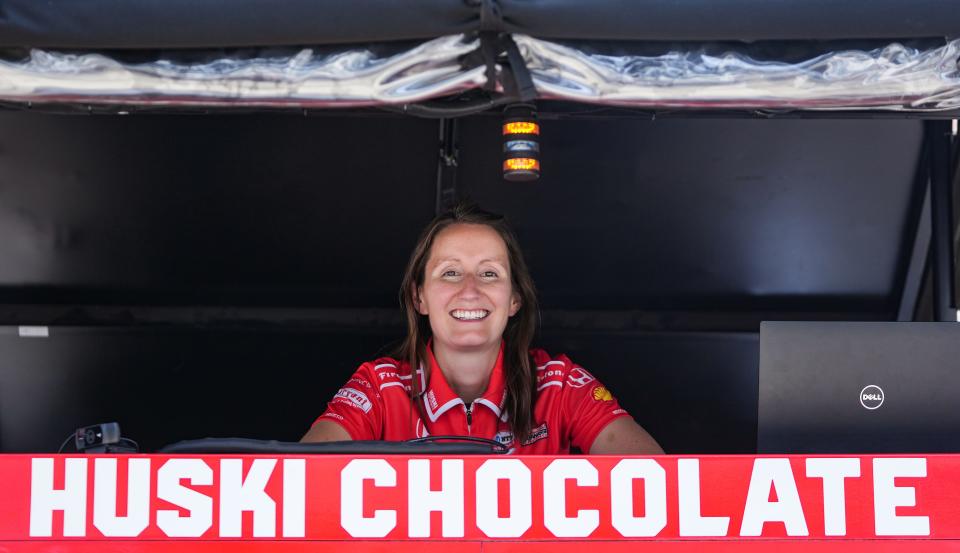
After she graduated high school, Ashmore was desperately searching for a way to get into racing. She took a chance and walked into Ponstein Racing, a Michigan team competing in the CRA late model series, with an offer.
"'Hey, I'll come work for you for free if you let me just observe and learn,'" Ashmore told the Ponstein team. They said yes.
Every afternoon after her summer day job, Ashmore would go to the shop and spend her nights working on race cars, sweeping floors, swapping out engines and rebuilding brakes.
"I just wanted the experience of being in a race shop no matter what I was doing," she said. "Just so I could learn."
As Ashmore entered her freshman year of college at Purdue, she knew exactly what she wanted to do in her racing career -- make those cars go faster. She wanted to be a racing engineer.
'Finally got a chance to prove myself'
As a standout mechanical engineering student at Purdue, Ashmore landed a spot with Purdue's Formula SAE, a team of about 30 students that each year builds a single-seat open wheel race car and competes against other university teams.
On the SAE team, Ashmore was the suspension lead, spending countless hours in the machine shop building parts for the car. She also raced the cars.
After graduating from Purdue in 2010 with a bachelor's degree in mechanical engineering, Ashmore started searching for racing jobs. She soon learned just how hard it was to get a foot in the door in this industry.
"You either grew up in racing, your family did it, you knew somebody your dad was friends with or you knew somebody who did it," said Ashmore. "It's kind of a boys club. Being a female I didn't even know anyone in racing. I didn't know where to start."
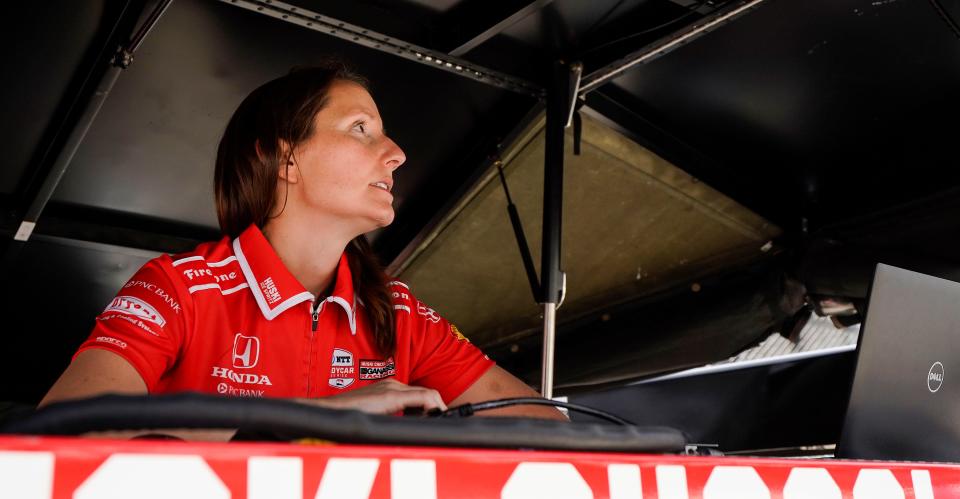
Out of college, Ashmore went to work for Chrysler and got a master's degree in mechanical engineering from Purdue. She liked her job, but it wasn't her love. Racing was.
Then it finally happened. Five years out of college, Ashmore finally knew someone in racing who knew of an opening with a NASCAR team.
"It was kind of a low level spot," Ashmore said. She didn't care. This might be her chance. "I picked up my life and moved to North Carolina and finally got to prove myself."
Ashmore was the third engineer on a Roush Fenway race team, the assistant to the assistant engineer. She did data mining and collection and prepared reports for other engineers.
But soon she worked her way up to race engineer for Bubba Wallace's Roush Xfinity team and then she worked her way up to the NASCAR Cup Series as a race engineer for Trevor Bayne. And then she was promoted to David Ragan's lead engineer.
Ashmore was on track to make NASCAR history as the first female crew chief, probably within the next few years. She wanted that desperately but she also had IndyCar dreams raging in her head.
'Nothing to do with gender'
Leaving NASCAR was hard. Ashmore loved her job but the traveling was intense, 38 times a year versus 17 in IndyCar. And she was struggling being so far away from her family in the Midwest. IndyCar seemed like the perfect fit.
She landed an engineering job at Ganassi four years ago and has never once regretted the decision. She loves that she has more time between races to think her way through glitches and problems. She loves the creativity and strategizing that time allows her.
And she loves Ganassi's commitment to women in racing. "It is definitely a male dominated sport," she said. "You don't see a lot of women."
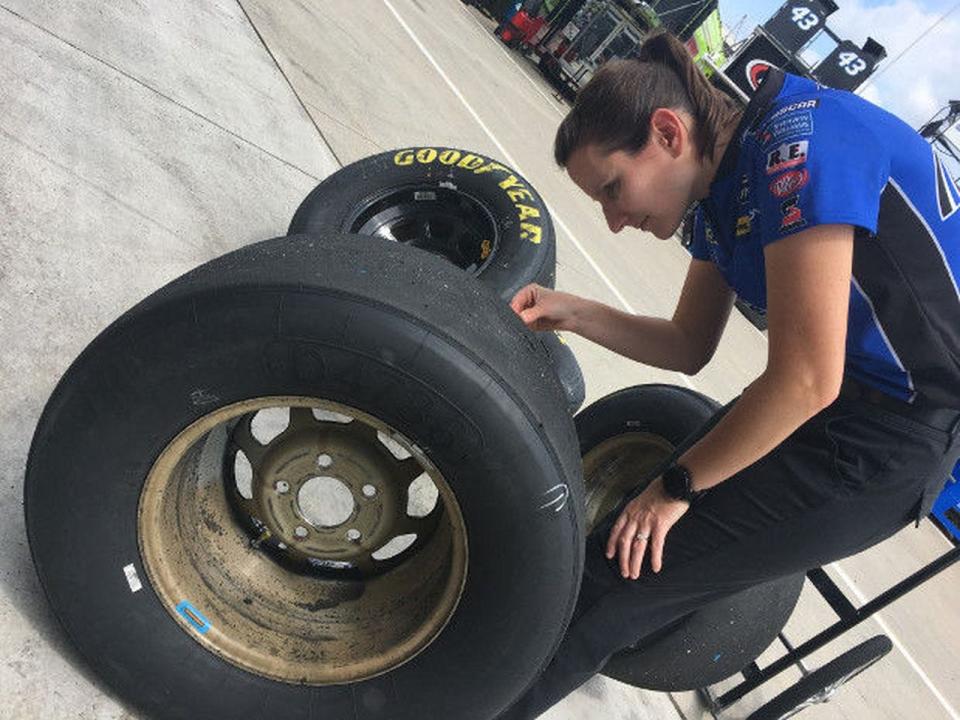
Ganassi is trying to change that. In 2022, PNC Bank and Ganassi collaborated to launch the Women In Motorsports program, part of the PNC Project 257, referring to the number of years, if things continue the way they are, it will take for women to be paid the same as men working in the same role.
"Which is insane," Ashmore said. "257 years."
The Women In Motorsports program offers free internships with housing to women in college and technical schools throughout the United States. Ashmore serves as a close mentor to the women, especially those in engineering, as they look to find their footing in the industry.'
"That was the hardest part, finding a way to get a foot in the door," she said. "This gives these women some opportunities that wouldn't otherwise exist, to get exposure to racing."
It also helps the teams, Ashmore said. "You are always stronger when you have diverse opinions and thoughts."
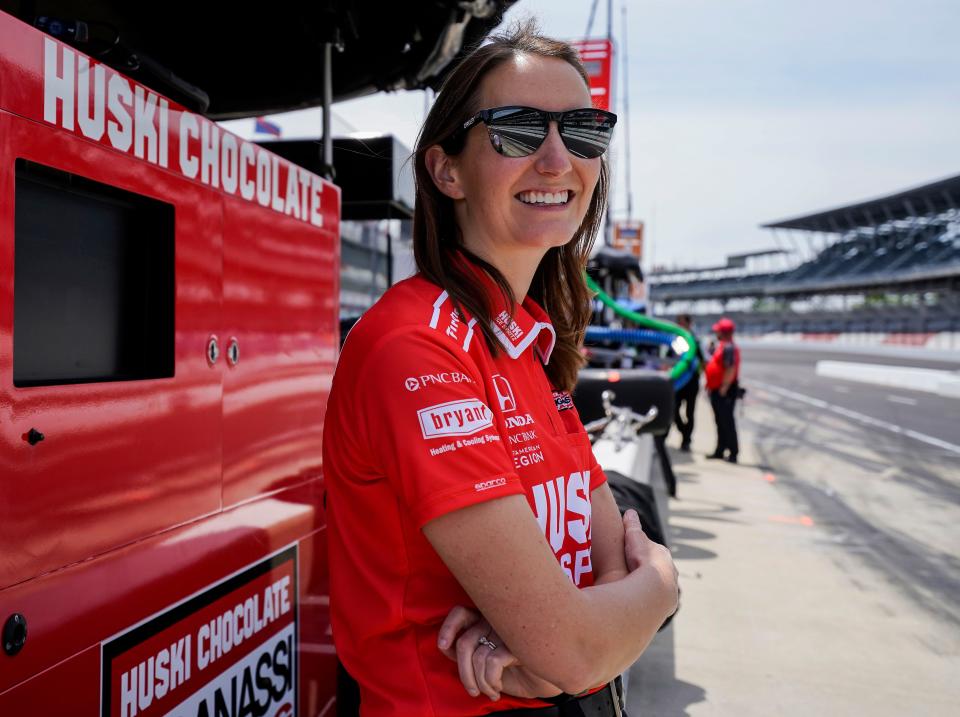
Having Ashmore on the Ganassi team has paid off in an Indy 500 victory and in making Indy 500 history in 2022. It's crazy to think, Ashmore said, that she will forever be the first woman on an IndyCar team to win an Indy 500.
And she wants all the young women who follow her to remember: "The qualifications for the role have nothing to do with gender. It has to do with your ability to do the job," she said. "And there is nothing that makes a man better than a woman based on those qualities.
"I want them to know they are welcome and wanted, and that they won't be the only women who are there."
Learn more about Ganassi's Women In Motorsports program.
Follow IndyStar sports reporter Dana Benbow on Twitter: @DanaBenbow. Reach her via email: dbenbow@indystar.com.
This article originally appeared on Indianapolis Star: First woman to win an Indy 500 was Marcus Ericsson's engineer in 2022

